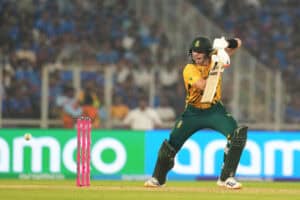The SA men's cricket team have received plenty of flak in recent times, but their results on the field are getting better and better.

The Proteas have received so much criticism in recent years that it almost feels like they are now not getting enough credit for their sterling exploits over the last nine months.
Their latest achievement may have just been a 1-1 stalemate against New Zealand, a team that has never won a series against South Africa, but, as ever, context is important.
Their 198-run win this week in Christchurch was the most dramatic of comebacks considering how heavily they were hammered in the first Test. That was a largely indefensible performance, except for the fact that the team had to travel to the other side of the planet, spend 10 days confined to their rooms in quarantine and then come out and take on the reigning world Test champions while their bodies were still trying to deal with jetlag.
The current Proteas are far from a star-studded outfit. Only Kagiso Rabada and Keshav Maharaj would probably be in contention for a World XI. But beating both India and New Zealand, the two sides that contested the World Test Championship final, in back-to-back series shows that there must be a pretty solid team culture being built in their changeroom.
Of course there are those who would like to see the efforts of the last nine months all go to waste by firing the current coach. If Mark Boucher leaves the Proteas family, there can be little doubt it will have a negative effect on performance. But Cricket South Africa has a history of believing the results of their showpiece product don’t matter.
Erwee and Verreynne
Apart from the remarkable resilience, determination and composure shown by the Proteas, it is always most pleasing when so many crucial contributions come from players who are still relatively new to Test cricket.
Batting does not come much harder than on the opening morning of a Test at the Hagley Oval, but Sarel Erwee knuckled down with Dean Elgar and backed up his captain’s incredibly brave decision to bat first after winning the toss. A statement of intent and sheer bloodymindedness if ever there was one.
Batting through to lunch unscathed was a superb effort and Erwee then announced himself on the Test stage by going on to a highly-skilled century, one that has literally taken years of hard toil.
There were similarities in the second innings when Kyle Verreynne and Wiaan Mulder crucially survived the first hour of the fourth day under big pressure. If wickets had come during that period, South Africa would probably have been bowled out with a lead of less than 300 and the Black Caps would have really fancied themselves to get that.
Brave to include Maharaj
It was also a very brave decision for the Proteas to include Maharaj in the starting XI on a ground where spinners have seldom been in the game. But a major factor in South Africa’s victory was the fact that they read the conditions in Christchurch much better than the home side did.
Maharaj’s first contribution came in the Proteas’ first innings when he shared a crucial ninth-wicket partnership of 62 with Marco Jansen. Again, in the second innings, South Africa’s bowlers were in fine form with the bat with Rabada’s sensational 47 off 34 balls not only providing vital quick runs but much inspiration.
Maharaj was a key figure with the ball in the second innings, and while Rabada and Jansen were also in the wickets, Lutho Sipamla made his mark in the game with a tight spell that kept the batsmen in check and ultimately resulted in the major wicket of Devon Conway, trapped lbw for 92 when the bowler fired in an impressive yorker.
Even Mulder fulfilled his role with some useful medium-paced seam bowling.
In fourth place now in the World Test Championship, and with two Tests against Bangladesh coming up in South Africa, we look forward to this Proteas squad, including management, being kept intact so they can continue to make waves in international cricket.
Support Local Journalism
Add The Citizen as a Preferred Source on Google and follow us on Google News to see more of our trusted reporting in Google News and Top Stories.






